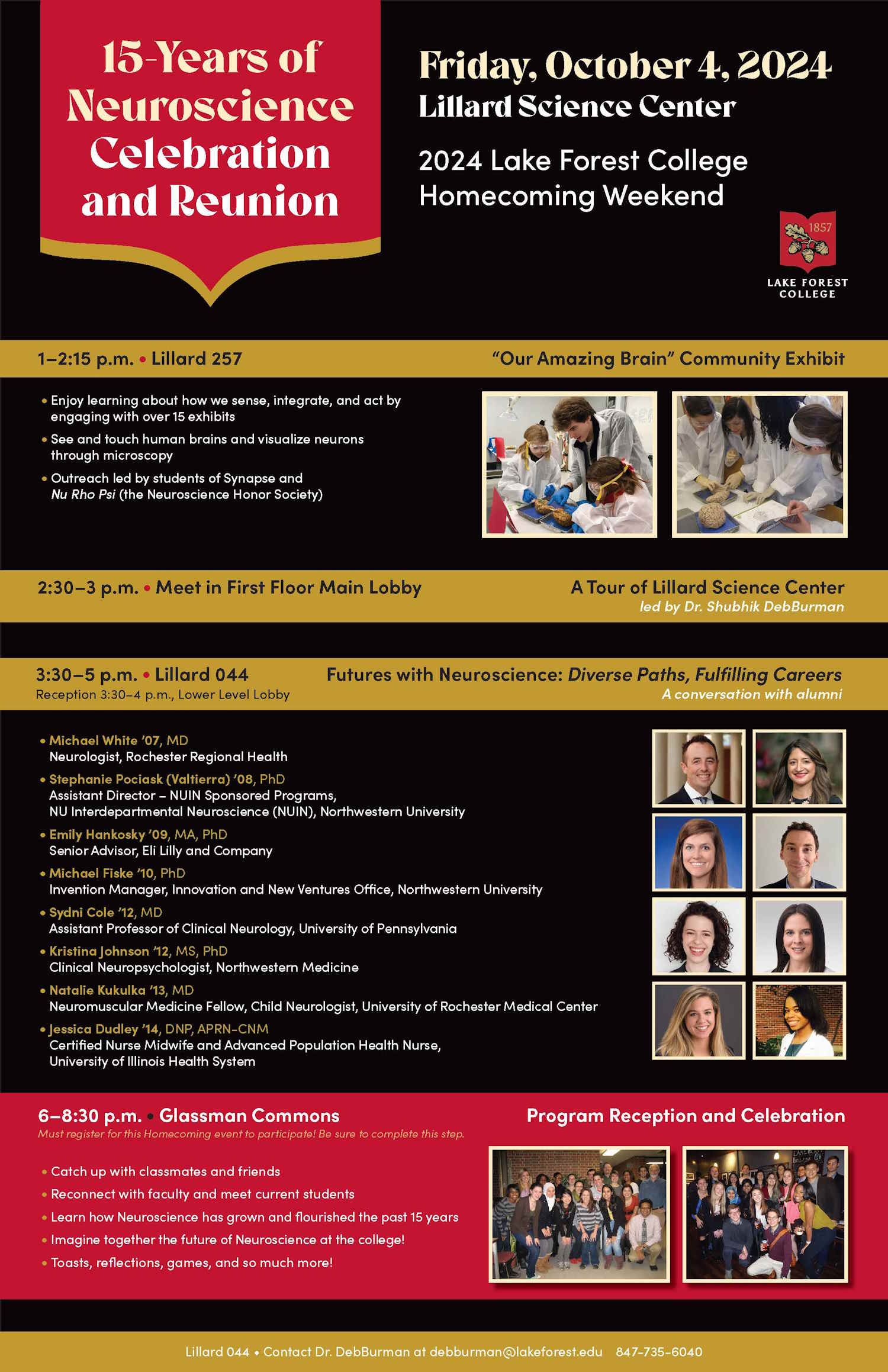Neuroscience marks 15 years of learning, growth, and community
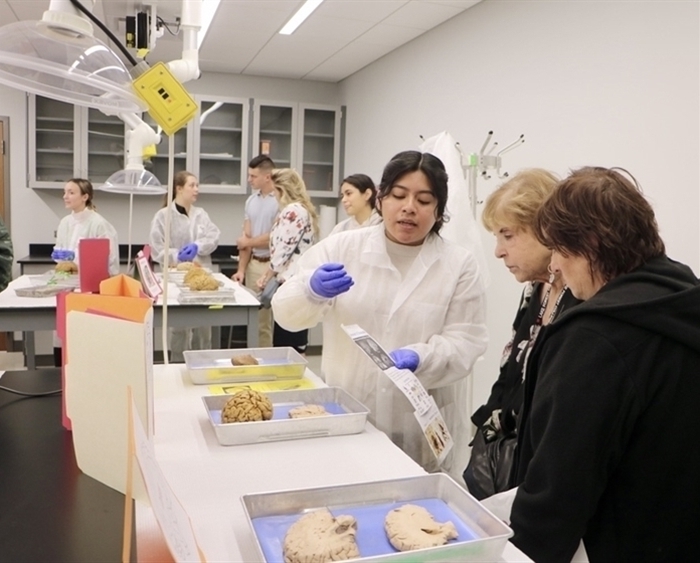
The College’s Neuroscience Program marked a tremendous milestone—15 years—during Homecoming 2024.
The festivities included an Our Amazing Brain Community Exhibit, an alumni reception, a lively panel discussion with alumni in front of an engaged audience, and an evening celebration that brought together faculty, students, and alumni from all 15 years of the program.
The Our Amazing Brain exhibit drew dozens of students, alumni, faculty, and staff who circulated through 16 teaching and learning stations. Neuroscience students presented key aspects of the human brain, covering everything from its structure to brain diseases. Attendees left with a deeper understanding of this vital organ as they progressed through the stations.
“The Amazing Brain Exhibit was a great success,” said Kesang Dorji ’25, a neuroscience and psychology double-major and co-president of Synapse. “Students engaged the community through hands-on displays of real brain specimens, microscope slices, and interactive discussions on how the brain senses, integrates, and acts—covering topics like movement, memory, and neurodegenerative diseases. The event wasn’t just about facts; it was about experiencing the brain’s magic together, as visitors of all ages immersed themselves in its wonders.”
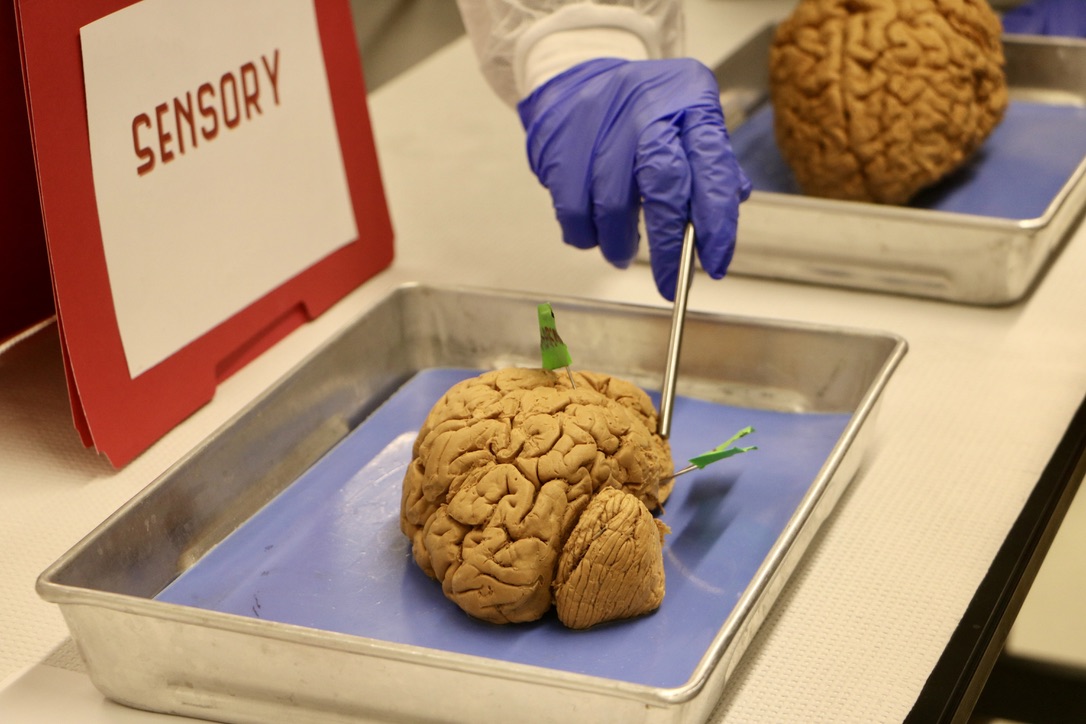
Dayyan Fundi ’28 shared his enthusiasm: “It was such an informative session. Now I understand the potential damage to the brain you can do by not getting enough sleep. It was also amazing to learn how much power our brain has through our senses.”
The exhibit even has Emily Rodriguez ’28 thinking about what classes she will take going forward. “I may major in neuroscience now. It’s so interesting and involves so many different areas of study,” she said.
Later that afternoon, the 15-year Neuroscience Alumni Panel captivated the audience as eight alumni, all with terminal degrees in their professions, shared how their experiences at the College shaped their careers. The panelists were: Jessica Dudley ’14, Natalie Kukulka ’13, Kristina Johnson ’12, Sydni Cole ’12, Michael Fiske ’10, Deek Atchley ’10, Emily Hankosky ’09, and Michael White ’07.
“Learning how to approach problems and think like a scientist enabled me to be very successful down the road.” —Michael White ’07
Fiske highlighted the importance of his summer research experience during his undergraduate years at Lake Forest. “Having that lab experience was just the most true experience for me,” Fiske said. “It was so similar to grad school. It made me grateful that I had that experience here.”
White emphasized the critical thinking skills he gained at the College. “Learning how to approch problems and think like a scientist enabled me to be very succcessful down the road,” he said.
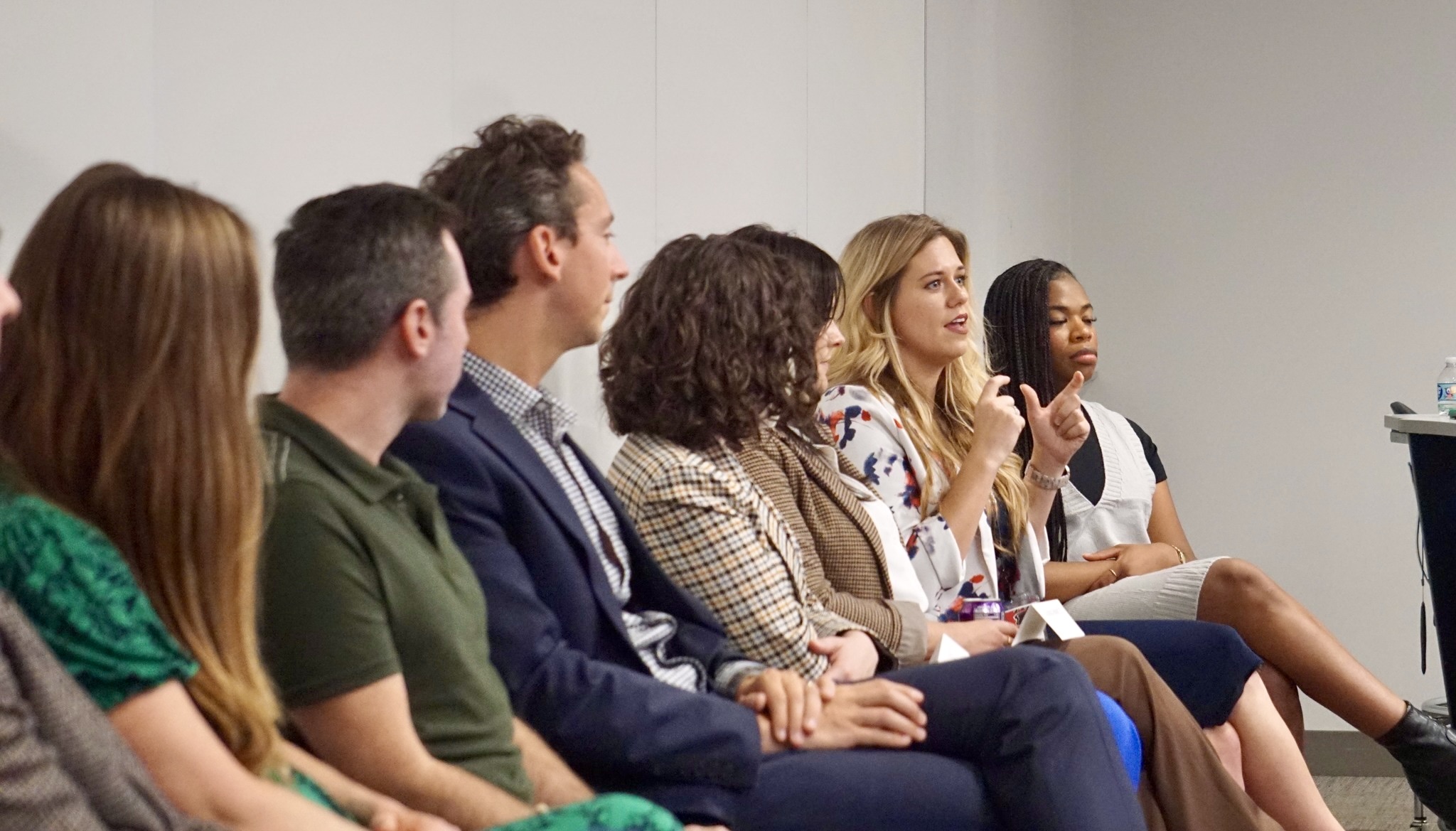 Photo by Sebastian Marin Buzo ’27
Photo by Sebastian Marin Buzo ’27
Kukulka (above, second from right) encouraged the students to experience as much as they can while at Lake Forest College “You have the opportunity to create your own tool belt of skills and versatility here that you will use for the rest of your life,” she said.
The Neuroscience Program, which began in 2009 with just one graduate, has grown to become one of the top three majors at the College.
“It’s been an amazing, sustained growth. There’s lots of energy in this major,” Professor of Psychology Matt Kelley said during the alumni panel.
The special day ended with a packed celebratory reunion reception in the Glassman Commons, aptly named for late professor of Psychology and Neuroscience Robert B. Glassman, whose long-standing vision since the 1990s ultimately led to the creation of the highly successful interdisciplinary major in 2009.
Disque D. and Carol Gram Deane Professor of Biology, Biochemistry and Molecular Biology and Neuroscience Shubhik DebBurman spoke glowingly of the 250+ exceptional alumni of this program, over 70 percent of whom have headed for post-graduate degrees within five years of graduation in careers in diverse fields of science, medicine, and allied health.
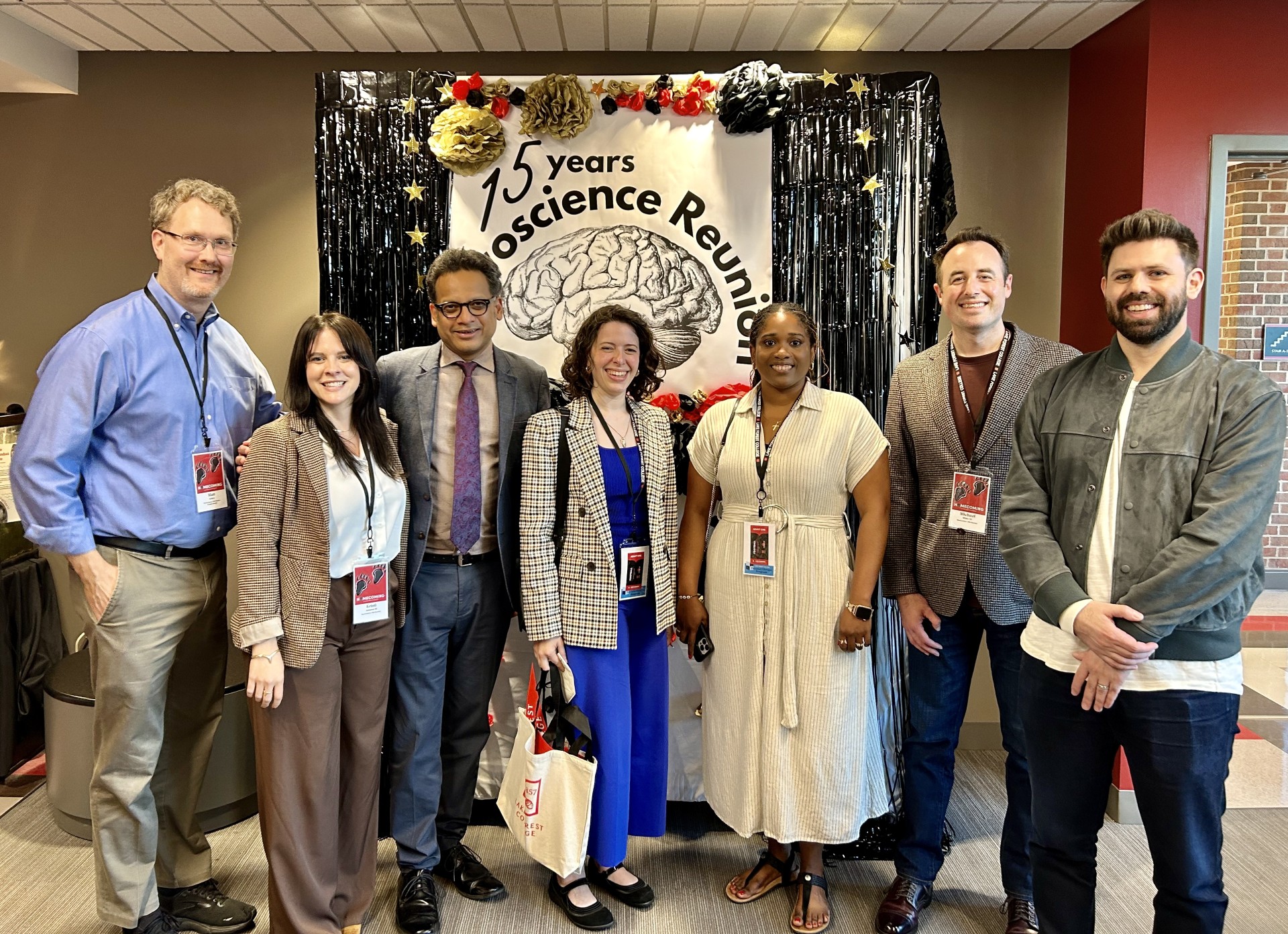 “We experienced an incredibly powerful day in the Lillard Science Center, when so many distinguished alumni returned home to provide reflection, testimony, inspiration, and gratitude for their liberal arts education and their science training,” he said. “Faculty were so gratified to hear alumni repeatedly single out our interdisciplinary curriculum, the emphasis we place on experiential and research training, the supportive peer learning community that anchors student success, and the faculty mentoring that last well beyond graduation.”
“We experienced an incredibly powerful day in the Lillard Science Center, when so many distinguished alumni returned home to provide reflection, testimony, inspiration, and gratitude for their liberal arts education and their science training,” he said. “Faculty were so gratified to hear alumni repeatedly single out our interdisciplinary curriculum, the emphasis we place on experiential and research training, the supportive peer learning community that anchors student success, and the faculty mentoring that last well beyond graduation.”
Hridey Kapoor ’25, a neuroscience major and chemistry minor, and co-president of Nu Rho Psi, found inspiration in the day’s events and opportunities to network.
“Looking at how much the Neuroscience Program and its alumni have grown, yet how many traditions still remain, was truly special,” Kapoor said. “The Our Amazing Brain event showcased this by having current students teach the alumni the basics of neuroscience, an activity which every alumnus has done. It’s rare to meet someone who has been in our exact shoes, and the successful outcomes, lessons, and personal stories each one of them bring with them.”
DebBurman reflects on the future: “Growth in neuroscience majors is a national phenomenon for over 25 years. Understanding how our brain fully works is the ultimate holy grail in the life sciences, and despite the dizzying pace of scientific discovery, we are still barely scratching the surface. This demand from students to be part of this knowledge quest makes so much sense. The future looks good.”


